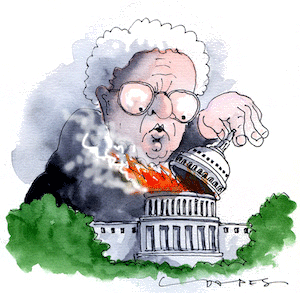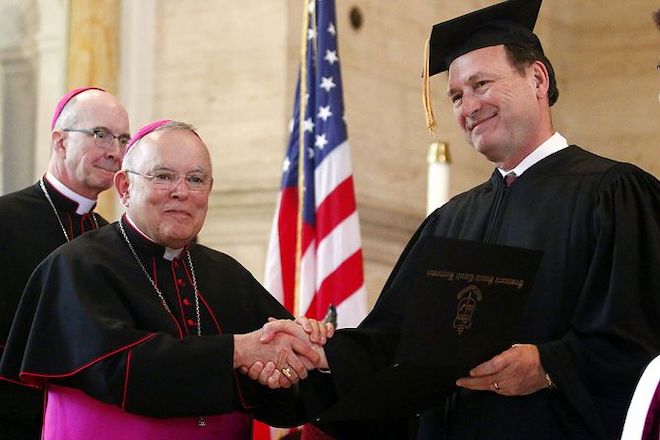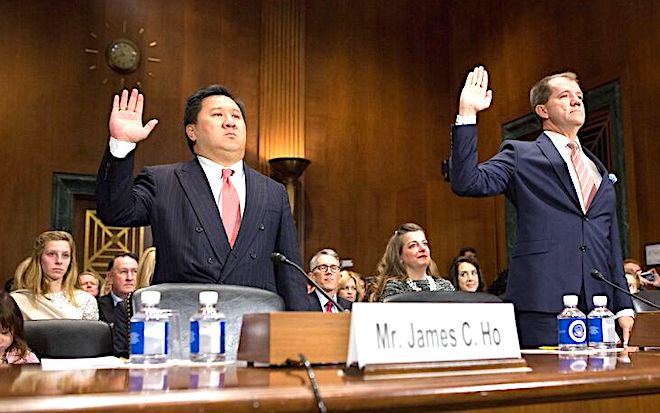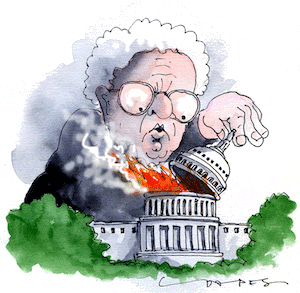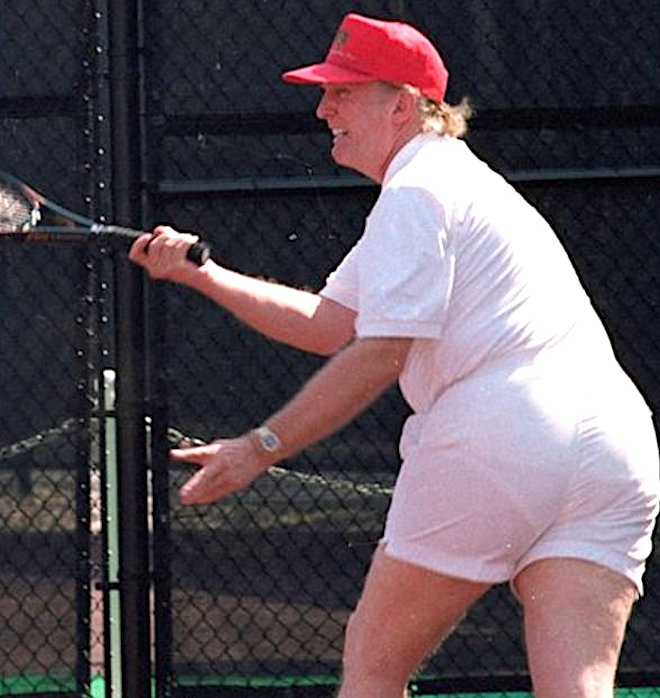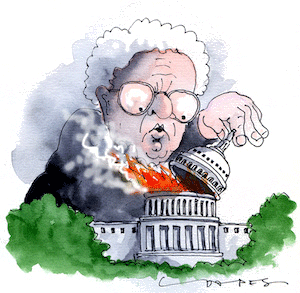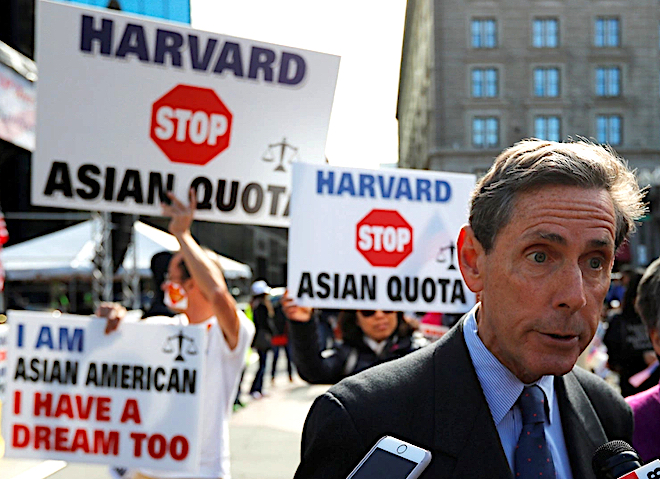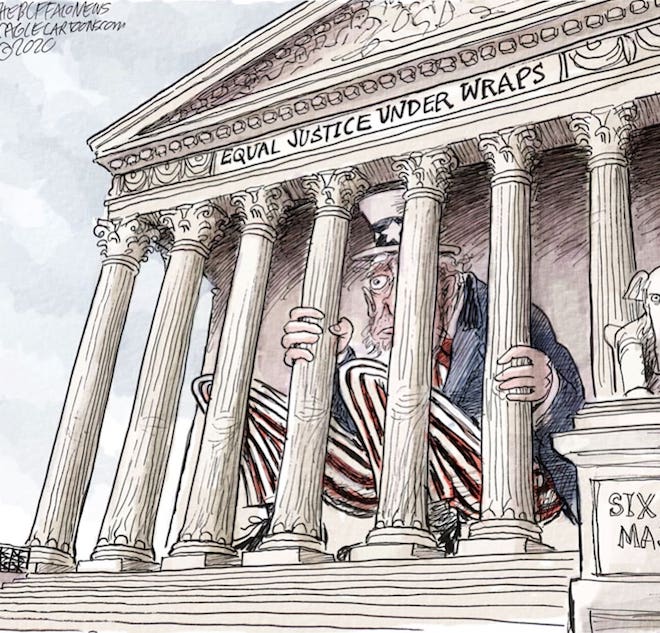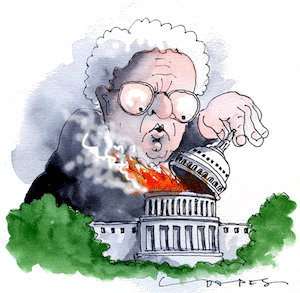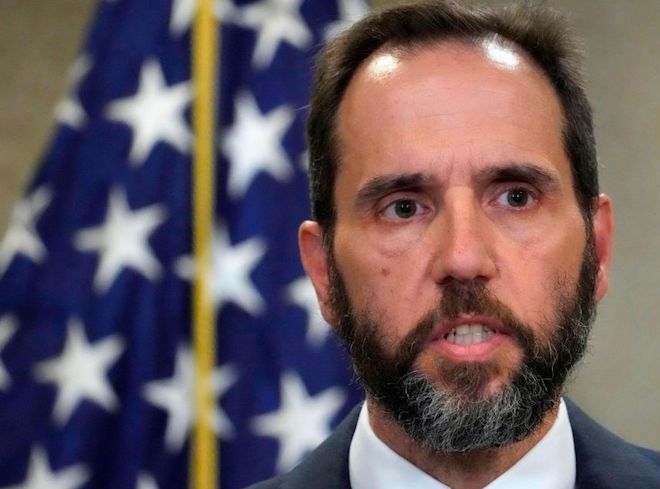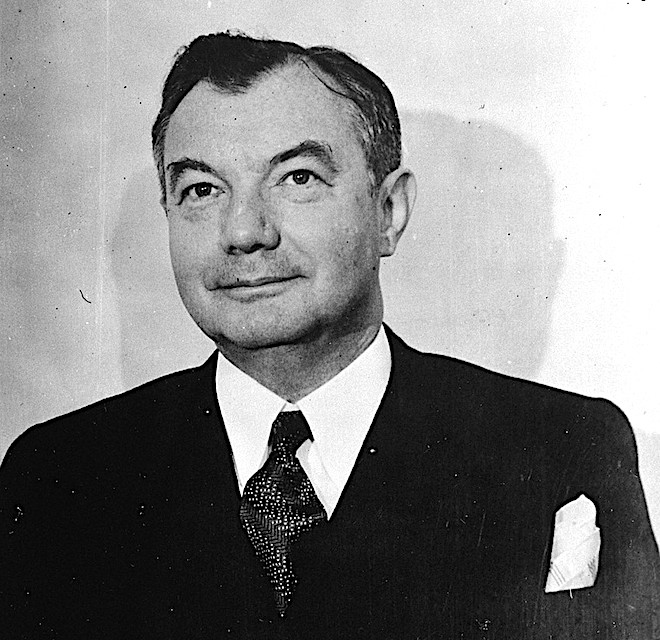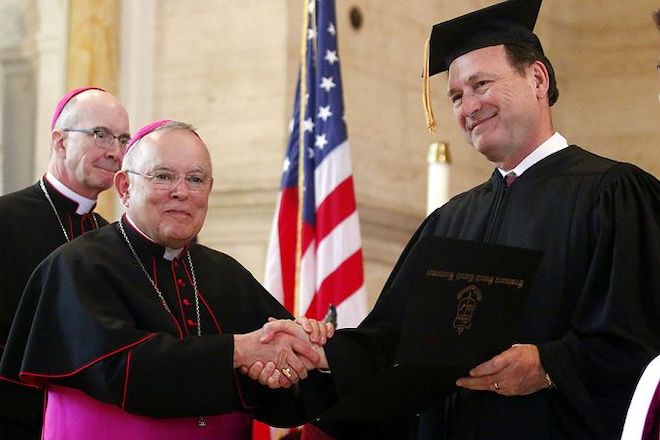LETTER FROM WASHINGTON
ROGER FITCH ESQ • THURSDAY, NOVEMBER 16, 2023
Trump ramping up his next term ... Wrecking crew of lawyers on his team ... Authoritarian agenda ... New season for the Supreme Court ... Gun rights for perpetrators of domestic violence ... Texas prohibits wealth taxes - forever ... Entrenched voting distortions ... The new Speaker - a Christian Taliban ... Roger Fitch files - Psychiatrist, Salon
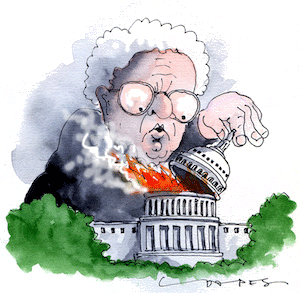 As the 2024 presidential election approaches, it's beyond belief that, according to some polls, more than half of America's voters prefer an indicted, mentally-unbalanced, narcissistic sociopath who now claims he won the 2020 election in all 50 states.
As the 2024 presidential election approaches, it's beyond belief that, according to some polls, more than half of America's voters prefer an indicted, mentally-unbalanced, narcissistic sociopath who now claims he won the 2020 election in all 50 states.
Here's an actual statistic: Donald Trump faces seven significant court cases that are scheduled during the presidential campaign season (handy calendar here). They will continue in some form, despite Trump's absurd motions such as the one to dismiss the January 6 insurrection charges.
Even Aileen Cannon, the oft-criticised Trump-appointed judge hearing the Florida classified documents case, has tired of Trump's dishonest and dilatory tactics.
Surely, many voters will change their minds after Trump's trials and court appearances.
This month, the former president testified in New York, in the civil fraud case against The Trump Organization, and Trump's family.
As expected, he behaved erratically, abusing to their faces both the prosecutor, NY Attorney General Letitia James, and the well-regarded judge, Arthur Engoron.
In bringing civil rather that criminal fraud charges, Attorney General James laid a trap: in civil cases, a plaintiff can subpoena a defendant to appear and answer questions, a tactic ideally suited to unsettle an evasive or belligerent defendant, even one with a script. It was a trap into which the ex-president neatly fell.
Clearly, Trump was indignant - outraged - that he, Donald Trump, should be called to account in a court of law. In fact, he essentially admitted to even more fraud while on the stand.
Though he won't be a witness in his criminal prosecutions, Trump is also digging holes deeper in the four criminal cases in which he faces a total of 91 felony charges.
It's the stuff of Trumpen-Schadenfreude.
Even so, the defendant is busy planning his next term as US president. In addition to personal revenge, Trump wants to pick up where he left off in his authoritarian remodelling of the country.
He has begun by recruiting a wrecking crew of meretricious lawyers, legal prostitutes so bad that even the Federalist Society won't touch them.
It's a frightening thought, seeking, rather than avoiding, intellectually-dishonest, lemming-like lawyers to staff a government, but media reaction has been mild.
The new gang's reinstatement of Trump's dreaded public-service-gutting Schedule F, overturned by Biden in his first days in office, will top the list for party thugs and mischief-minded legal acolytes.
≈ ≈ ≈
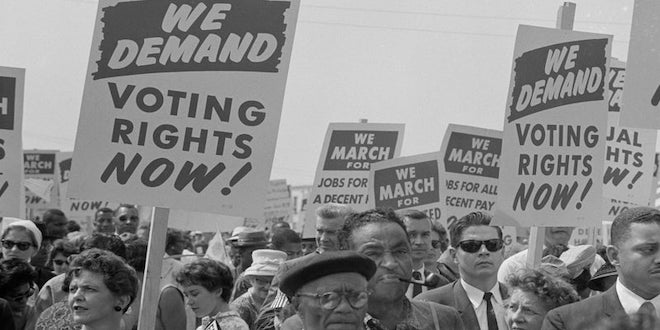 Voting: a long threatened right
Voting: a long threatened right
The 2023 supreme court term has opened, producing understandable unease because of the bad cases on its docket. The first of such cases, predicted to be its worst, was a 2nd Amendment, "gun rights" case, US v Rahimi, and concerned the right to keep and carry firearms when subject to a domestic violence order.
Applying Clarence Thomas's bizarre test from last season's Bruen case, the Fifth Circuit found Rahimi was entitled to access his firearms as there were no comparable restrictions on gun ownership in the 18th-century.
That's quite true: there were few, if any, colonial prosecutions for domestic violence.
Rahimi has now been argued, and contrary to expectations it doesn't look good for "gun enthusiasts". The court may finally be drawing a line on "gun rights". Michael Dorf has more.
The supreme court will also be hearing a South Carolina redistricting case that could decide the majority in the next congress. The new districting is pretty clearly racist, but since the 2019 supreme court ruling (in Rucho v Common Cause) that partisan gerrymanders are non-justiciable, the Republican legislature has rebranded the districts as merely partisan.
It's an irrelevant co-incidence that the voters are black; they were actually targeted for voting Democrat…
Meanwhile, on the tenth anniversary of Shelby County v Holder, Americans should reflect on the damage caused by one of the most outrageous decisions in US supreme court history, the opinion that judicially annulled the essential section of Lyndon Johnson's landmark Voting Rights Act of 1965.
The VRA had only recently been reconfirmed by a near-unanimous bipartisan majority of congress; its extralegal invalidation by the supreme court has never been adequately explained.
The immediate consequence of Shelby County was the introduction of state restrictions on voting that are now notorious: the decision is directly responsible for the ten years of voter disenfranchisement that have followed in Red States, and for the gerrymandered legislatures that are able to perpetuate themselves, as well as pack and crack congressional districts for the benefit of the Republican party.
Although the US constitution famously lacks an explicit right to vote, 49 state constitutions do contain this right. That's why it's important that state supreme courts remain free of partisan control.
≈ ≈ ≈
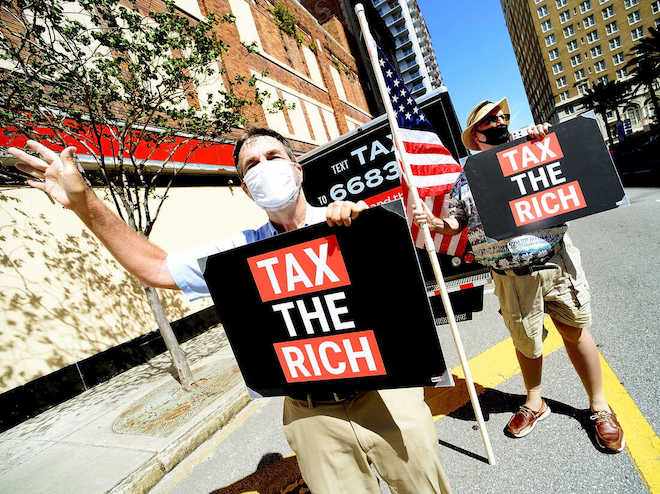 Not in Texas
Not in Texas
November's elections in several US jurisdictions actually boosted voting rights, and were a win for Democrats, including the establishment in Ohio's constitution of a right to abortion that had been bitterly opposed by the Republican legislature.
Further south, in the plutocrat paradise of Texas, there were also constitutional amendments on the ballot.
In a state with 30 million residents, it took less than 2 million voters to embed a prohibition on wealth taxes that will bind future legislatures forever.
≈ ≈ ≈
Mike Johnson, a Louisiana congressman who played a leading role in the legal ploys of the 2020 Sedition Caucus, is the new Speaker of the US House, second in line for president.
He's also the first "Christian nationalist" to hold the position, the secular republic's first theocrat Speaker. The Washington Spectator has more.
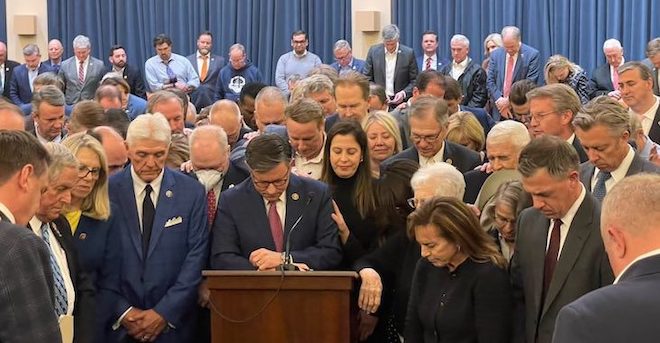 Johnson: governing by the Bible
Johnson: governing by the Bible
Johnson is a former lawyer for Alliance Defending Freedom, the legal hot-house where novel "religious freedoms" are concocted, embellished with phony plaintiffs and forwarded for high court imprimatur. It's former staff includes extreme Trump judges including 9th circuit judge Lawrence VanDyke, and Texas's US district court judges Matthew Kacsmaryk and Brantley Starr.
America experienced theocracy, e.g, New Haven Colony (1638-1664), where only male Puritan church members could vote or hold office, and law was based strictly on the bible.
The federal constitution of 1789 outlawed religious tests, but eight state constitutions still have them. These unconstitutional provisions are unenforceable since a 1961 Supreme Court decision, Torcaso v Watkins.
Even so, Speaker Johnson believes in religious tests; it seems he intends to consult the bible the "New Haven" way.
